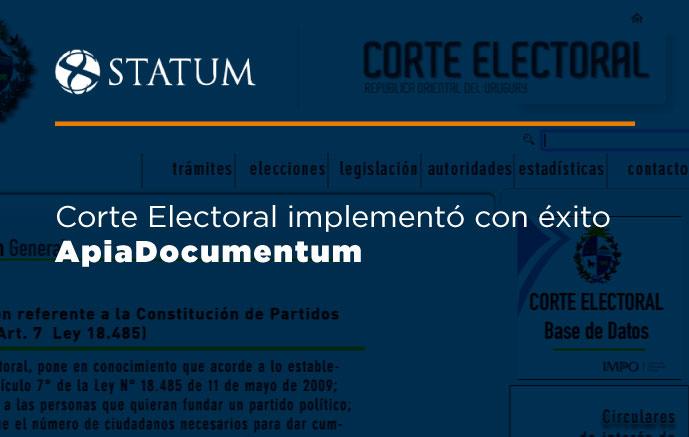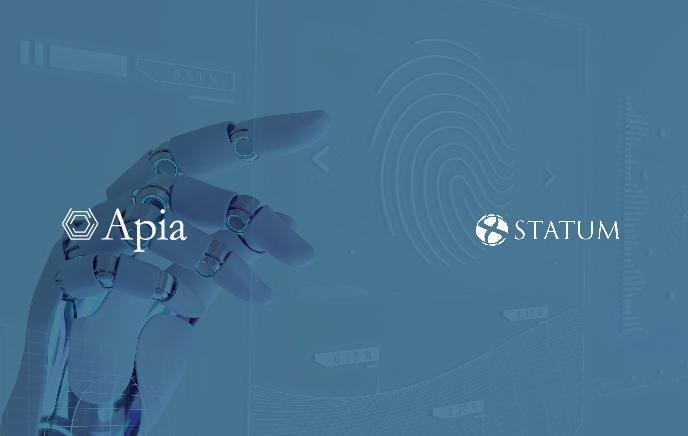Corte Electoral implementó con éxito ApiaDocumentum
Desde el organismo señalan a la herramienta desarrollada por STATUM como un aspecto clave para mejorar la eficiencia en este año electoral.
Información:
La Corte Electoral implementó con éxito ApiaDocumentum, producto desarrollado por STATUM, luego de haber cumplido con la capacitación de 300 funcionarios y una importante campaña de gestión del cambio. El sistema de Expediente Electrónico será esencial para abordar la cantidad creciente de expedientes que se generarán durante este año electoral. En este sentido, el ministro Pablo Klappenbach indicó que “la herramienta servirá para mejorar la eficiencia”.
ApiaDocumentum es una solución pensada para gestionar expedientes, documentos y flujos de trabajo, soportados electrónicamente. Su objetivo es eliminar el soporte papel, mejorar la calidad del servicio y conseguir la transparencia y democratización de la información.
“Aspiro a que la herramienta nos permita que los trámites se realicen en forma más ágil y que su seguimiento sea más sencillo”, señaló Klappenbach.
Desde STATUM se agregó que se cumplieron los objetivos de conseguir una implementación exitosa en pocos meses y con una cobertura nacional.
Durante dos meses, STATUM capacitó al personal de la Corte Electoral. En principio, 50 funcionarios fueron instruidos en el manejo de la herramienta y luego estos replicaron los conocimientos hasta alcanzar 300 en todo el territorio nacional. La dinámica de capacitación continuará hasta cubrir toda la plantilla del organismo, la que está integrada por unos 800 funcionarios.
Como el uso de ApiaDocumentum implica un fuerte cambio en las tareas laborales cotidianas y, en este caso en particular, la edad promedio del personal de la Corte Electoral es alto, el proceso de relevamiento, capacitación y puesta en producción llevado a cabo por el organismo, STATUM y Agencia de Gobierno Electrónico y Sociedad de la Información y del Conocimiento (Agesic) se apoyó fuertemente en diversas actividades de gestión del cambio para minimizar el posible rechazo que el nuevo sistema informático pudiera generar en etapas tempranas.
“La herramienta es accesible y muy amigable para trabajar. Es un cambio fundamental para el organismo contar con ella”, completó el ministro de la Corte Electoral. Y agregó: “Desde mi punto de vista, el trabajo y su coordinación entre el equipo designado por la Corte Electoral, STATUM y Agesic ha sido muy bueno, al grado de que la implementación (aún en su etapa experimental) ha sido exitosa”.
La campaña de gestión del cambio implicó entrevistas con actores claves (desde los ministros del organismo, mandos medios, hasta funcionarios a nivel operativo) para entender la perspectiva que cada uno tenía del proyecto, así como también para entender las posibles dificultades. También incluyó talleres con el personal, incluso con los jefes y subjefes de todas las oficinas departamentales.





Comentarios (0)
Deja un comentario